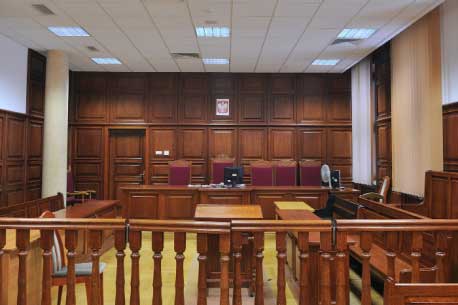The preparatory proceedings constitute the first stage of the criminal procedure. These proceedings are instituted in case of a justified suspicion that an offence has been committed. "A justified suspicion that an offence has been committed" means a situation when it is not yet certain that an offence has occurred but it is probable enough to conduct preparatory proceedings in the case. The suspicion of an offence can result from a notice or from information obtained by the prosecuting authorities on their own. In their initial phase, preparatory proceedings are frequently not conducted against a specific person but "in the case" (thus, a competent authority issues a decision to start investigation or inquiry, where it specifies the act in question and sets forth its legal classification).
Much depends on the mode of prosecuting a given offence. The following can be distinguished:
- Criminal proceedings for an indictable offence - so-called "on indictment". Offences of this kind are prosecuted by the state and the accusing party in the judicial proceedings is a public prosecuting authority (e.g. a public prosecutor). Furthermore, these offences can be divided into:
- offences prosecuted ex officio, where each justified suspicion that an offence has been committed entails a duty to prosecute it.
- offences prosecuted at a motion - the prosecuting authorities can deal with such cases only when an authorized person demands it. For instance, in the event of a theft to the detriment of a close person (Article 270 §3 of the Penal Code) prosecution can be instituted only at a motion of the aggrieved person.
- Offences prosecuted on the basis of a private accusation. In a sense, this is a simplified model of criminal procedure when it is the aggrieved party who prepares, brings and supports the indictment. Public prosecuting authorities do not conduct proceedings in such cases. There are relatively few offences prosecuted in this mode and they include rather minor acts, such as insult, libel, or violation of bodily integrity. Actions typical of the preparatory proceedings can sometimes be conducted even before the proceedings are formally instituted (that is before a decision about commencement of investigation or inquiry is issued). This pertains to situations when it is necessary to conduct so-called checking procedures (when there is a need to verify truthfulness of the facts given in a notice of a crime). Furthermore, actions must be undertaken before the formal commencement of the proceedings when there is a need to record traces and evidence of the crime (due to the risk of their loss, erasure or distortion). In such situations, prosecuting authorities can conduct necessary actions, e.g. make an inspection, or take comparative or evidentiary material for tests (such as blood of a person suspected of driving under the influence of alcohol).
[Legal status as at July 2015]



